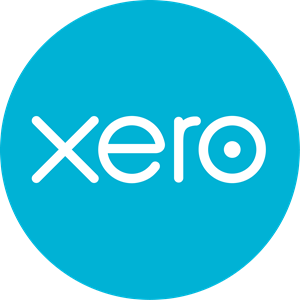Why Choosing Accounting Software Requires Honest Evaluation
Let me start with full transparency: I’m a Xero Silver Partner. This means I manage multiple licences for clients and have the ability to resell Xero’s products. Being a Silver Partner comes with a few perks—occasional discounts, some branded merchandise, and the odd invitation to lunch from our partner manager (though I’m still waiting for that one!). Importantly, we also get a free version of Xero to use within our practice.
However, I want to make it clear that my opinions about Xero are entirely my own. I’m not paid to endorse their software, but I do genuinely like it, and here’s why.

My Journey with Xero
I’ve been using Xero for about eight years now, and in my view, it’s one of the best cloud-based accounting solutions available today. That’s not to say other options aren’t good—it’s largely a matter of personal preference. You’ll find that most accountants tend to align with either Xero or QuickBooks, with other software providers striving to catch up in terms of market share and functionality.
Take Sage for example. Sage Line 50 desktop used to dominate the market as the go-to for accountants and bookkeepers. They charged premium prices, offered substantial discounts to resellers, but were slow to adapt to the rise of cloud computing. By the time they released their cloud product, it was, in my opinion, a second-rate offering. Now, they’re struggling to keep up with more innovative platforms..
So is Bookkeeping Software Actually Worth the Investment?
So why am I sharing all this? Simply put, clients frequently ask me whether Xero is worth the investment, especially when considering an upgrade to a more expensive licence.
My answer is a resounding yes. For small businesses, the cost might seem steep from a cashflow perspective, but opting for spreadsheets or inferior software often ends up costing more in the long run. Whether it’s the extra time you spend managing the books or the higher fees you pay your accountant to sort things out, saving money on software can be a false economy.

The Value of Good Bookkeeping Software
From my perspective, many business owners are quick to invest in products or services that enhance their core offerings. However, they hesitate when it comes to administrative or financial tools. Yet, for those of us in the financial and administration sectors, quality software is a crucial part of our toolkit. In my line of work, having the best bookkeeping software isn’t just a luxury—it’s a necessity.
As I’ve mentioned, I believe Xero is one of the better options out there, but it’s not for everyone. When choosing software, ask yourself: Is it good value for money? Does it make your life easier? Is there another product that could do the job better? Be wary of low upfront costs—they often rise once you add all the necessary features.

Finding the Right Fit
If you’re happy with your current software and it fits your needs, my advice is to stick with it, provided you can afford it. Switching to save a few pounds might not be worth the hassle. But don’t let price be your only guide—this applies to any product or service in both your business and personal life. Your bookkeeping software should be the financial hub of your business, helping you manage more than just income and expenses. It should provide valuable insights, such as cashflow forecasts and payroll integration, and offer connectivity to third-party tools that help run your business more efficiently.

What to Look for in Bookkeeping Software
When evaluating bookkeeping software, consider the following features:
- Bank Account Integration: Seamless linking to your bank account is essential.
- Ease of Use: Look for software with intuitive interfaces and plenty of tutorial videos.
- Mobile App: A mobile version allows you to manage your finances on the go.
- Third-Party Integration: Check whether it supports third-party apps, either directly or through platforms like Zapier.
- Data Capture: The ability to add receipts and bills directly into the system can save a lot of time.
- Security: Ensure that the software keeps your data safe.
- Scalability: Choose a solution that can grow with your business.

Final Thoughts
Your bookkeeping software is an extension of your accountant—it should be someone (or something) you trust implicitly. If you’re not satisfied with your current software or accountant, it may be time to consider a change. But remember, the grass isn’t always greener, and cheap isn’t always better. Make your decision based on value and fit, rather than price alone.
In the end, honesty really is the best policy, especially to yourself when it comes to tools that play such a critical role in your business’s success.



